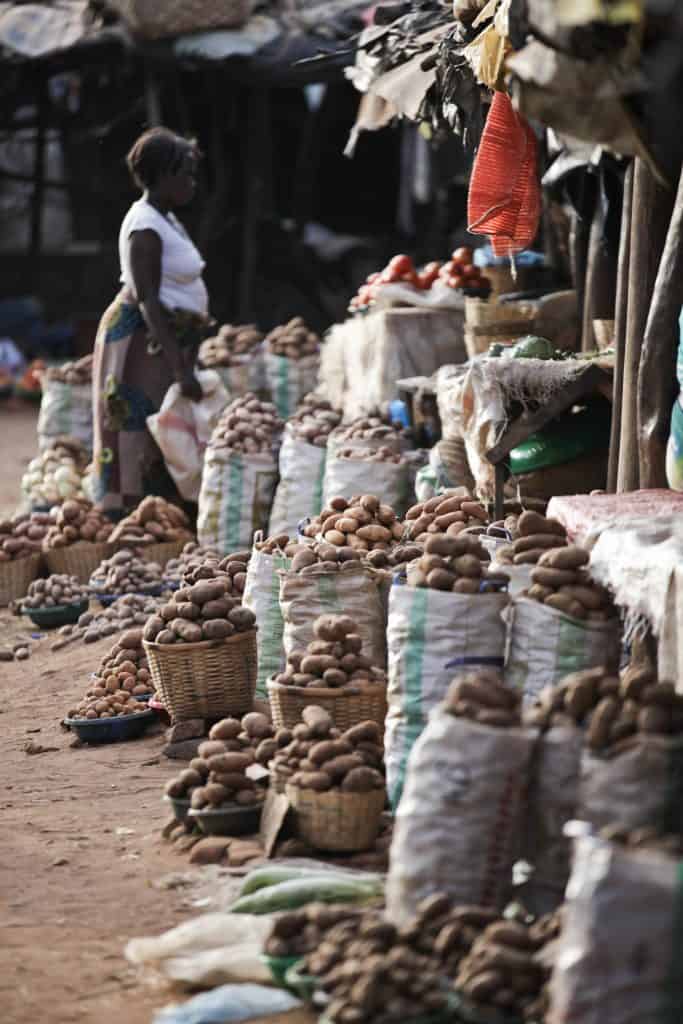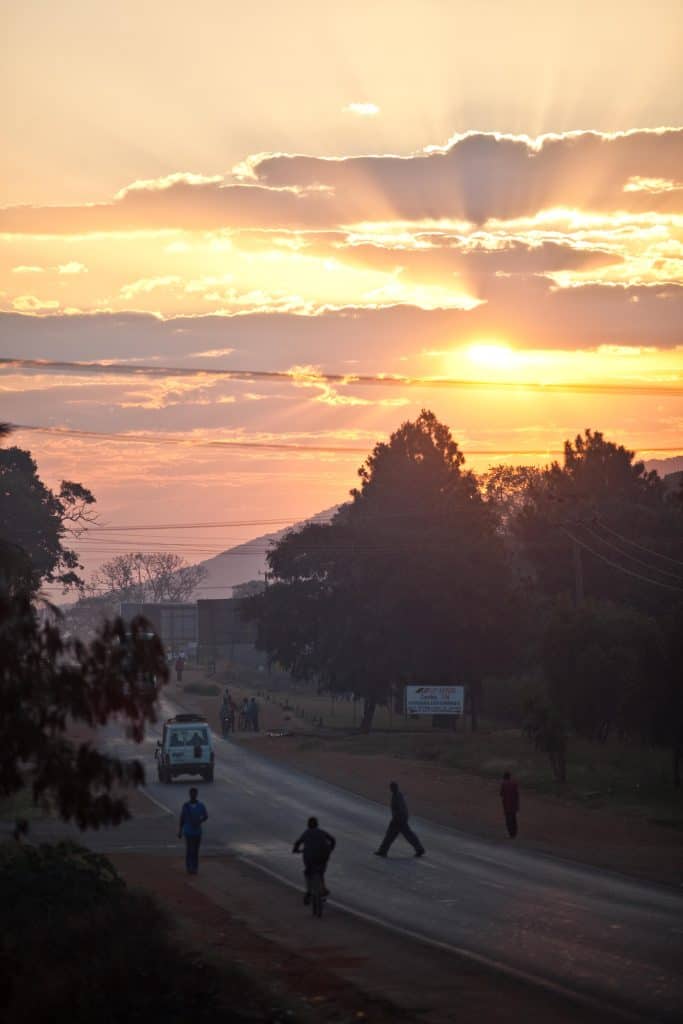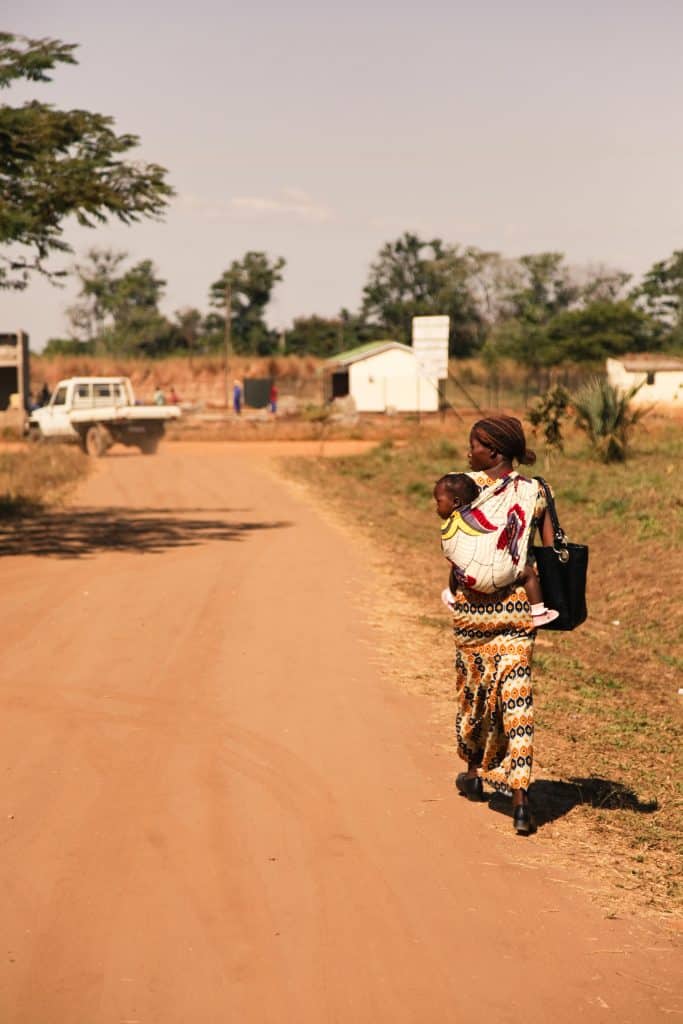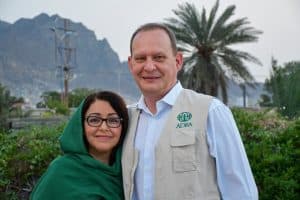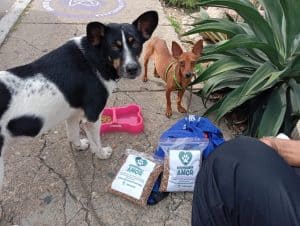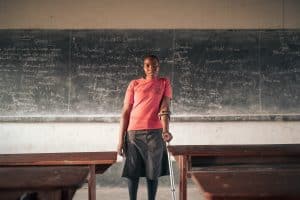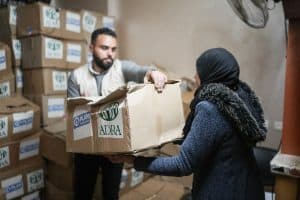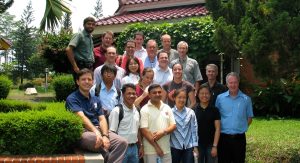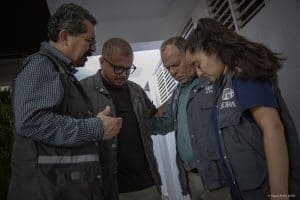International humanitarian agency aims to tackle behavior change to prevent the coronavirus from spreading
(ZAMBIA) September 16, 2021 – The COVID-19 pandemic has become a compounding challenge in the country of Zambia, with a population of 18.3 million people, according to findings from the Adventist Development and Relief Agency (ADRA).
“Most people live in slum-like locations with zero to minimal basic services due to poor water supply, sanitation facilities, and hygienic practices,” says Kennedy Habasimbi, country director for ADRA in Zambia. “Zambia has also experienced economic challenges exasperated by the pandemic, forcing people who can’t afford to stay home to work in high-risk conditions, such as congested and unsanitary marketplaces.”
Habasimbi says that street vendors can be spotted selling vegetables and fruits without wearing masks or washing their hands before serving customers. Additionally, pedestrians waiting at bus stations are seen not wearing face masks correctly nor maintaining a six feet distance as recommended by the World Health Organization.
Habasimbi adds only 30 percent of the Lusaka population, one of the areas ADRA is responding, has access to piped and treated water, for others who don’t have this access, they must depend on boreholes and shallow wells. In the past, lack of access to clean water and basic amenities has caused fatal outbreaks of cholera, typhoid, and waterborne diseases.
“From our previous COVID-19 assessments, we found that 72 percent of peri-urban populations think that the virus affects the wealthy, the elderly and people who are already sick,” Habasimbi says. “Such views unfortunately are a barrier to preventive measures and put many people at risk during this health crisis.”
Habasimbi says that despite the local government’s aid to create awareness, a majority of the population think that COVID-19 is not real, and life goes on as usual. Vaccines have been made available, but due to disinformation and conspiracy theories, only 50,000 doses out of 18 million were administered. Rates of vaccinations have improved and since August, more than 560,000 doses were administered according to Zambia’s Ministry of Health.
Since March 2020, ADRA has been working closely with local authorities, local Adventist ministries, and agencies to raise the profile about hygiene and water supply provision.
“At the time, the communication was one-sided; people were just given information without being given opportunities for feedback,” Habasimbi says. “The strategy now locally called ‘COVID-19 Lusaka Operation Serve Everyone Project’, or C.L.O.S.E., is to include engagement with community leadership to set standards of equity and transparency among communities most at-risk for COVID-19.”
ADRA in Zambia intends to maintain existing partnerships while creating new ones, including forming alliances with community influencers and other faith-based agencies to help address COVID-19 disinformation and prevention.
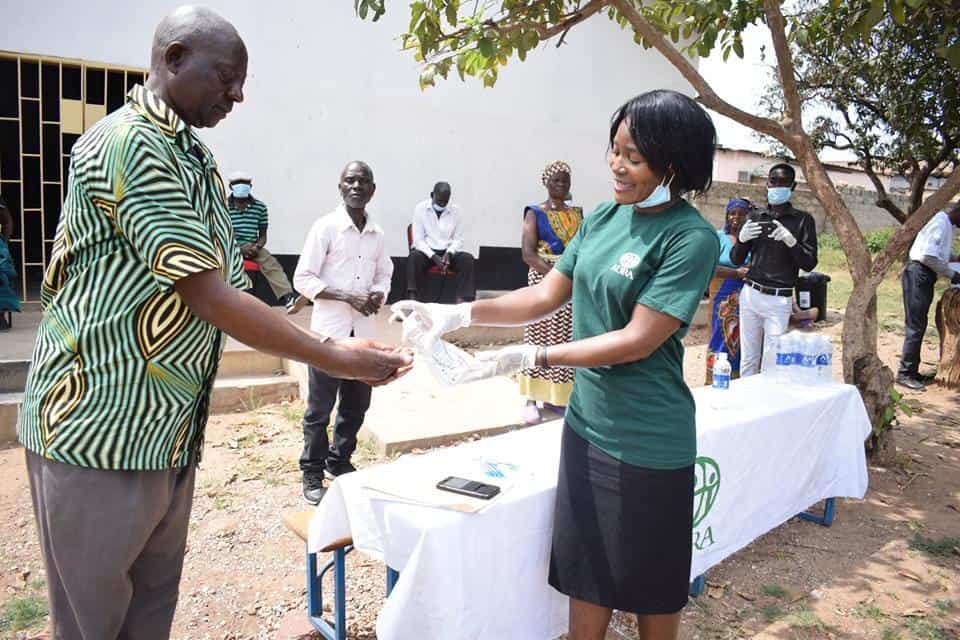
Photo credit: Kennedy Habasimbi
“ADRA will work with local Adventist youth and women ministries and health departments to train nearly 100 volunteers. These volunteers will then work with community partners, Zambia’s Ministry of Health, and community partners, to conduct inclusive ‘community-led risk reduction activities’ to counter myths about COVID-19 and vaccines,” says Habasimbi.
Further assessments by ADRA indicated that women were the most vulnerable during the COVID-19 pandemic in Zambia. They were responsible for fetching water, in some cases were the breadwinners, had to nurse the sick and children, and handle chores that exposed them to unsanitary conditions in the marketplace.
With the support of the local Adventist church’s women ministries and health departments, people who are most vulnerable in addition will receive information on how to grow nutritious gardens in their backyards and raise small livestock to obtain food for their household and generate income.
ADRA also plans to work on several key projects in Zambia, including:
- Drilling and installation of water supply points to communities to aid 20 schools and 30 health centers.
- Psycho-social support, hygiene kit distribution, and community testing.
- Skills training for farming and providing youth empowerment programs.
- Construction of a clinic, staff houses, a maternity ward, and sanitation facilities.
Habasimbi says that through these initiatives, ADRA sets to target roughly 50,000 households in select locations in Zambia.
“We will be working on these projects into 2023, constantly monitoring and evaluating the process,” Habasimbi says. “Over time, we will be better able to track what works, what needs improvement, and adopt them for future initiatives.”
Journalists who wish to secure interviews for this story may email press@ADRA.org.
About ADRA
The Adventist Development and Relief Agency is the international humanitarian arm of the Seventh-day Adventist Church serving in 118 countries. Its work empowers communities and changes lives around the globe by providing sustainable community development and disaster relief. ADRA’s purpose is to serve humanity so all may live as God intended.
